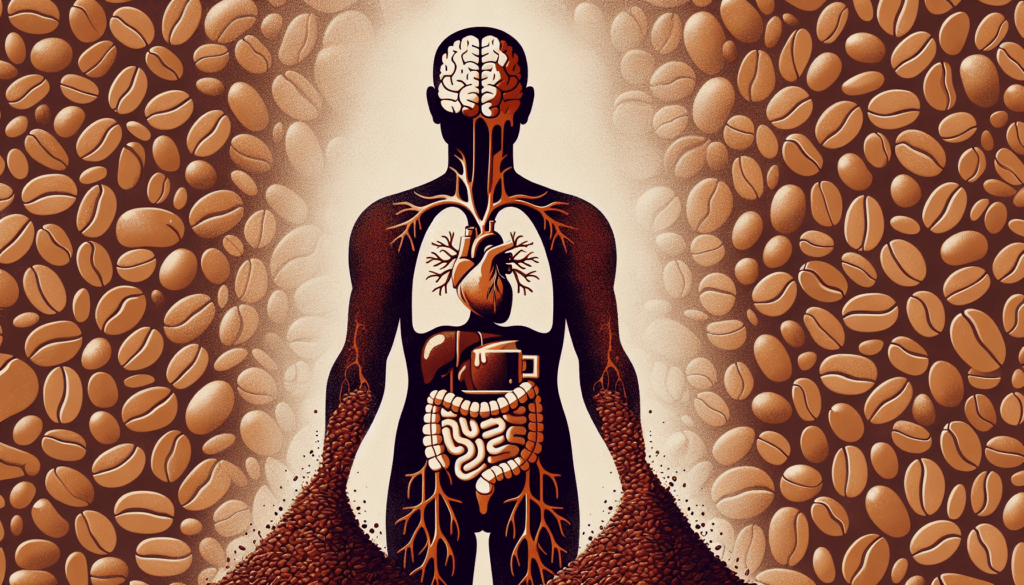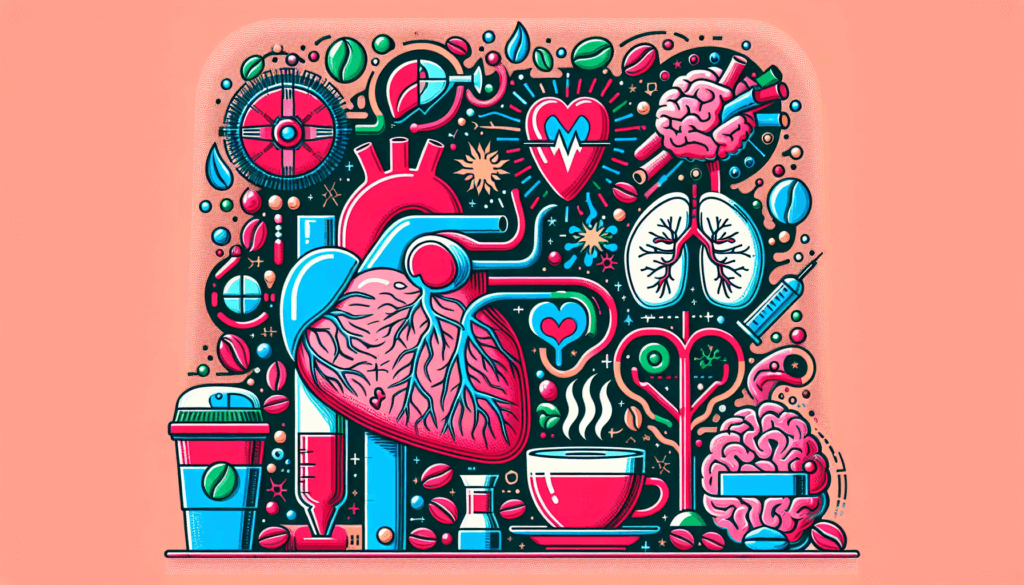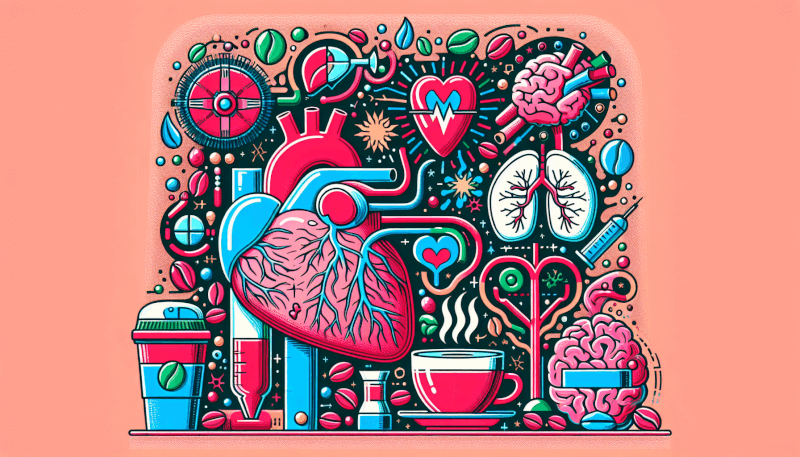Imagine starting your day off with a piping hot cup of coffee, its rich aroma filling the air and awakening your senses. As you take that first blissful sip, a surge of energy courses through your veins, ready to tackle whatever lies ahead. But have you ever wondered what happens to your body when you indulge in one cup too many? In this article, we will uncover the fascinating effects that excessive coffee consumption can have on your body, from the adrenaline rush it provides to the potential drawbacks lurking beneath the surface. So grab your favorite mug, and let’s embark on this caffeine-fueled journey together.

Impact on Nervous System
Drinking too much coffee can have various impacts on your nervous system. Firstly, it can increase your alertness and make you feel more awake and focused. This is because of the high concentration of caffeine in coffee, which stimulates the central nervous system. However, while this heightened alertness can be beneficial in small doses, excessive coffee consumption can lead to heightened anxiety. The caffeine in coffee can stimulate the release of adrenaline, which can cause feelings of restlessness and irritability. Additionally, consuming too much coffee can also make it difficult for you to fall asleep, as the stimulant effects can keep you awake at night.
Effect on Digestive System
Your digestive system can also be affected when you drink too much coffee. One common effect is stomach upset and increased acidity. Coffee is acidic in nature and can irritate the lining of the stomach, leading to symptoms such as heartburn, indigestion, and stomach pain. Another impact on your digestive system is increased bowel movements. Coffee has a laxative effect, and excessive consumption can lead to diarrhea or loose stools. Moreover, drinking too much coffee can contribute to dehydration, as caffeine is a diuretic and can increase urine production.

Impact on Cardiovascular System
Excessive coffee consumption can have significant effects on your cardiovascular system. One immediate effect is an increased heart rate. The caffeine in coffee acts as a stimulant and can cause your heart to beat faster than usual. This can be particularly noticeable if you consume a large amount of coffee in a short period of time. Furthermore, drinking too much coffee can elevate your blood pressure. Caffeine stimulates the release of adrenaline, which can constrict blood vessels and increase blood pressure. Long-term consumption of excessive coffee can also lead to irregular heartbeats and even increase your risk of developing cardiovascular diseases such as arrhythmias or heart attacks.
Effect on the Urinary System
When you consume too much coffee, your urinary system can be affected as well. One noticeable impact is increased urine production. As a diuretic, caffeine stimulates the kidneys to produce more urine, which can result in more frequent trips to the bathroom. This increased urine production can contribute to dehydration, especially if you do not adequately replenish the fluids lost. It is important to stay hydrated and drink plenty of water when consuming coffee to counteract this effect on your urinary system.

Influence on the Respiratory System
Your respiratory system can be influenced by excessive coffee intake as well. One effect is an increased breathing rate. Caffeine can stimulate the respiratory centers in your brain, leading to a faster and more shallow breathing pattern. While this effect is not typically harmful, it can be noticeable if you have consumed a large amount of coffee. Additionally, for individuals with asthma, excessive coffee consumption can aggravate their symptoms. Caffeine is a bronchodilator, meaning it can relax and open up the airways, but for some individuals, this can trigger or worsen asthma symptoms.
Impact on Musculoskeletal System
Drinking too much coffee can also have an impact on your musculoskeletal system. One common effect is muscle tension. The caffeine present in coffee can cause muscles to contract and become more tense than usual. This can manifest as muscle stiffness, tremors, or even muscle spasms. If you already have muscle tension or sensitivities, excessive coffee consumption can potentially exacerbate these symptoms. It is important to be aware of how your body responds to coffee in order to minimize any discomfort in your musculoskeletal system.

Effect on the Reproductive System
Both women and men can experience effects on their reproductive system due to excessive coffee consumption. For women, fertility issues can arise. Studies have shown that high levels of caffeine intake, including from coffee, can negatively impact a woman’s fertility and increase the time it takes to conceive. It is recommended for women who are trying to conceive or are undergoing fertility treatments to limit their coffee intake. Additionally, for men, excessive coffee consumption has been linked to decreased sperm count. Caffeine can affect sperm quality and reduce the number of viable sperm, potentially impacting fertility in men as well.
Influence on Nutrient Absorption
Another impact of excessive coffee consumption is its influence on nutrient absorption in your body. One nutrient that may be affected is iron. Coffee contains compounds called tannins, which can interfere with the absorption of iron from plant-based sources. If you rely on plant-based iron sources for your dietary needs, excessive coffee consumption can lead to reduced iron absorption and potentially contribute to iron deficiency. Additionally, coffee can also hinder the absorption of calcium. Again, this is due to the presence of tannins, which can bind to calcium and inhibit its absorption. If you are looking to maintain healthy levels of iron and calcium, it is important to be mindful of your coffee intake.

Effect on Sleep Patterns
Drinking too much coffee can significantly impact your sleep patterns. The stimulating effects of caffeine can disrupt your ability to fall asleep and stay asleep. Consuming coffee, especially in the evening or close to bedtime, can interfere with your natural sleep-wake cycle. Coffee keeps you awake by blocking the effect of adenosine, a neurotransmitter that promotes sleep. As a result, you may experience difficulty falling asleep, increased wakefulness during the night, and overall disrupted sleep. To improve your sleep patterns, it is advisable to limit your coffee intake, particularly in the later part of the day.
Ways to Reduce Coffee Intake
If you want to reduce your coffee intake, there are several strategies you can employ. One method is to gradually reduce your consumption. Start by replacing one cup of coffee with a decaffeinated alternative or a different beverage altogether. Slowly decrease the number of cups of coffee you consume per day until you reach a comfortable level for you. Another approach is to find alternative beverages that provide a similar sensory experience to coffee. This can include herbal teas, matcha, or even decaffeinated coffee options. Lastly, it is important to be mindful of your overall caffeine intake, especially in the evening. Limiting the consumption of caffeinated beverages later in the day can help promote better sleep and reduce the overall impact on your body.
In conclusion, while coffee can be a popular and enjoyable beverage, it is important to be mindful of your consumption and its effects on your body. Excessive coffee intake can impact various systems, including the nervous system, digestive system, cardiovascular system, urinary system, respiratory system, musculoskeletal system, reproductive system, nutrient absorption, and sleep patterns. By understanding and monitoring these effects, you can make informed decisions about your coffee consumption and prioritize your overall health and well-being.


